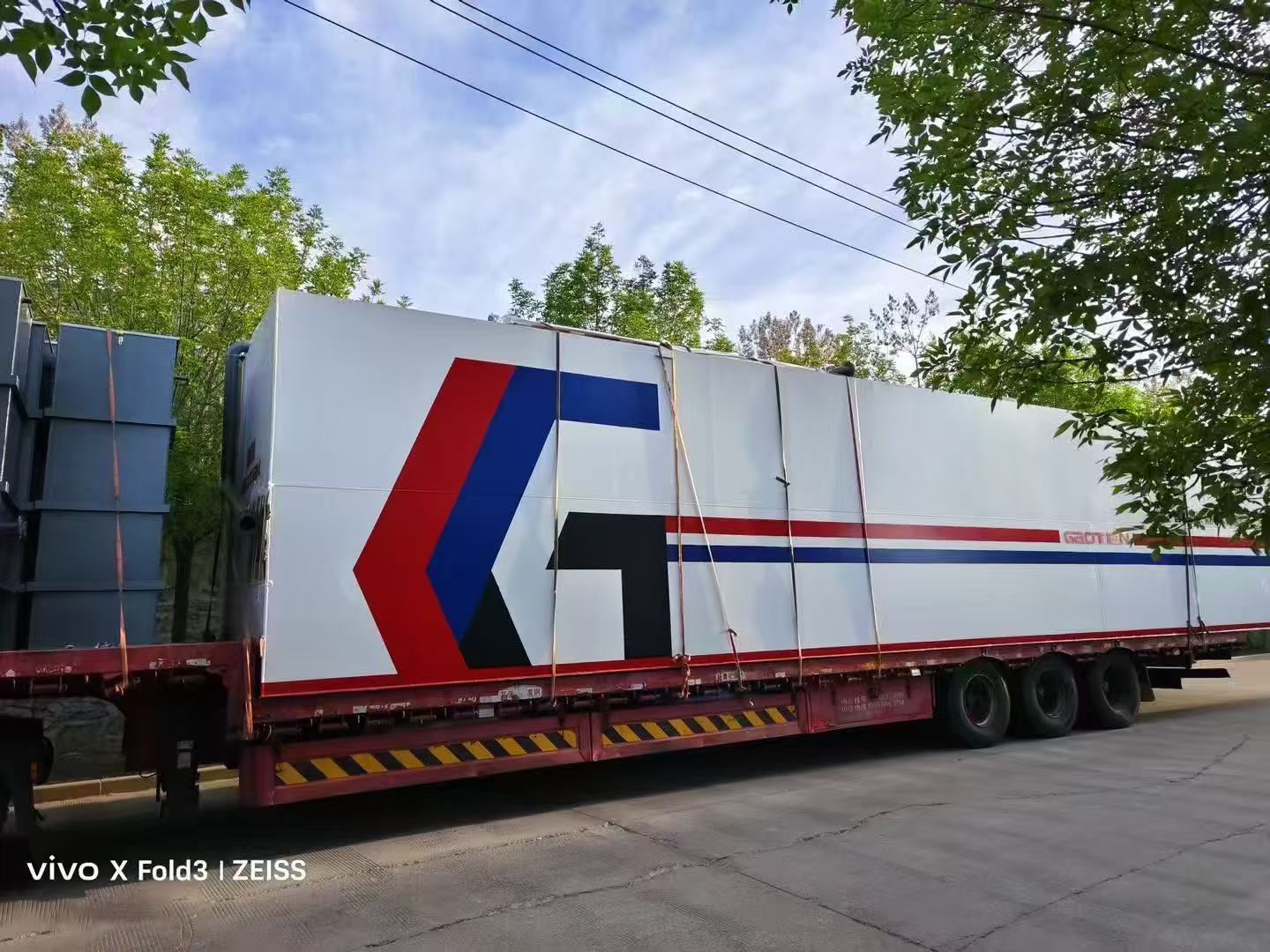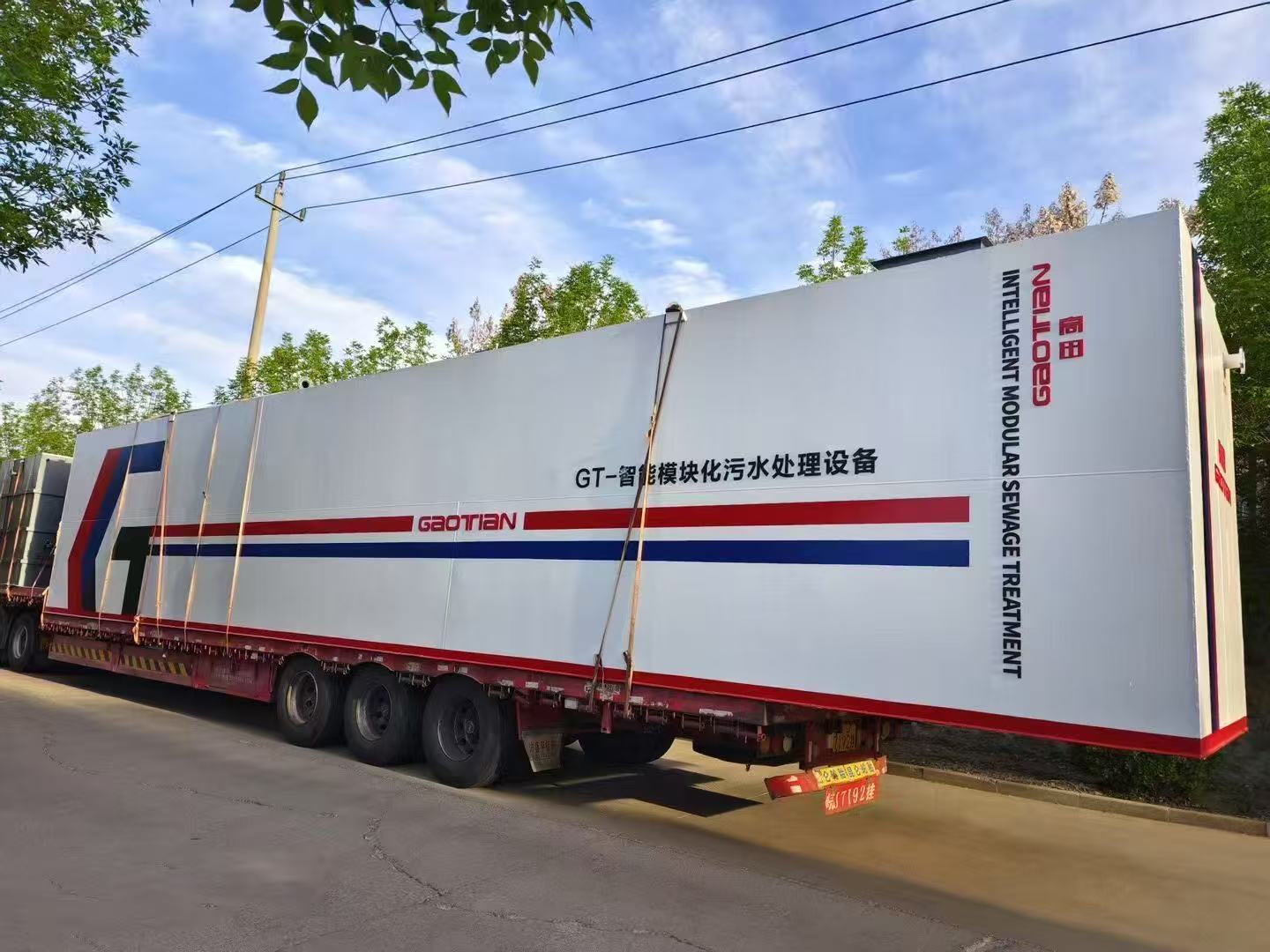Oversized Smart Modular Wastewater Treatment Systems
A leading innovator in water treatment solutions, recently completed the delivery of a batch of oversized smart modular wastewater treatment systems to a large-scale industrial park in China. These systems, designed for high-capacity wastewater processing, were deployed to address the park’s urgent need for sustainable and efficient water management amid tightening environmental regulations. This case study explores the challenges, technological advancements, and outcomes of this landmark project.

Challenges
The industrial park, located in a water-stressed region, faced three critical issues:
Complex Wastewater Composition: Effluents contained high levels of heavy metals, organic pollutants, and suspended solids from diverse manufacturing processes.
Space Constraints: Limited available land required compact yet high-capacity systems.
Rapid Deployment: The client demanded installation within 60 days to avoid production delays.
Regulatory Compliance: Meeting China’s stringent Class 1A discharge standards (GB 18918-2002) was mandatory.
Solution: Highland’s Smart Modular Systems
Highland engineered a customized solution using its Oversized Smart Modular Wastewater Treatment System, featuring:
Modular Scalability: Prefabricated modules (each 8m x 4m x 4m) were assembled on-site, reducing installation time by 40%. The system’s capacity reached 5,000 m³/day.
AI-Driven Optimization: Integrated sensors and IoT-enabled controllers monitored pH, COD, turbidity, and heavy metals in real time, adjusting treatment parameters automatically.
Multi-Stage Treatment Process:
Primary Treatment: Coagulation-flocculation and dissolved air flotation (DAF) for solids removal.
Secondary Treatment: Membrane bioreactors (MBR) with bioaugmented microbial strains for organic degradation.
Tertiary Treatment: Reverse osmosis (RO) and ultraviolet disinfection for advanced purification.
Energy Efficiency: Solar-powered aeration units and sludge-to-biogas conversion cut operational costs by 25%.

Implementation and Results
Timeline: Delivery and installation were completed in 55 days, 8% ahead of schedule.
Performance:
Effluent quality exceeded GB 18918-2002 standards, with COD < 30 mg/L and NH3-N < 5 mg/L.
Sludge production reduced by 35% through anaerobic digestion integration.
Remote monitoring via Highland’s proprietary platform lowered maintenance labor by 50%.
Client Feedback: The industrial park reported a 20% reduction in water procurement costs and seamless compliance with environmental audits.
Innovation Highlights
Oversized Modular Design: Highland’s patented “plug-and-play” structure allowed scalability without compromising footprint efficiency.
AI Predictive Maintenance: Machine learning algorithms detected membrane fouling trends, enabling preemptive cleaning and extending equipment lifespan.
Localized Adaptation: Materials and control software were tailored to China’s variable water hardness and seasonal temperature fluctuations.
Market Impact and Policy Alignment
This project aligns with China’s 14th Five-Year Plan (2021–2025), which prioritizes smart, energy-saving wastewater infrastructure. Highland’s success demonstrates how modular systems can accelerate the replacement of outdated treatment plants in industrial clusters. Post-deployment, the company secured six additional orders for similar systems, reinforcing its leadership in China’s $12 billion industrial wastewater treatment sector.
Future Outlook
GAOTIAN plans to integrate blockchain technology for transparent compliance reporting and expand partnerships with municipal governments. By 2025, the company aims to deploy 50+ smart modular systems nationwide, targeting industries such as textiles, petrochemicals, and electronics manufacturing.
GAOTIAN’s delivery of oversized smart modular systems exemplifies how innovation in modular design, automation, and renewable energy integration can resolve complex wastewater challenges while supporting China’s green transition. This project sets a benchmark for sustainable industrial water management in resource-constrained environments.




